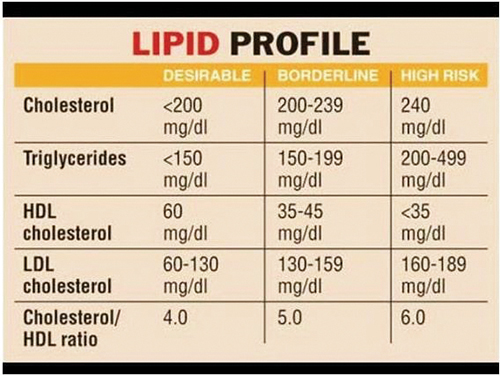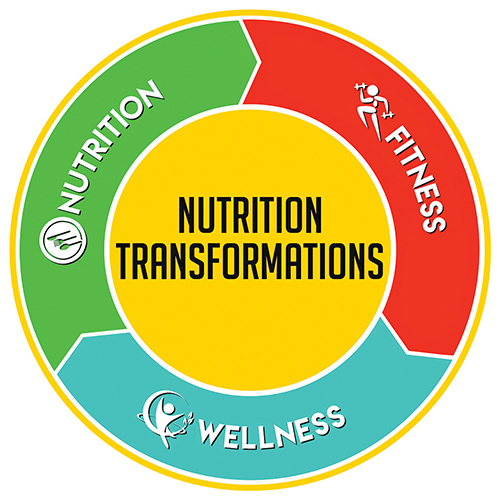
Dear Jenn,
I’m a man in my thirties. I recently had blood work done and the results indicated high cholesterol. I never had high cholesterol before and was very put off. My doctor was considering prescribing medication to lower my cholesterol. It was not determined if this high cholesterol value was due to a genetic predisposition or other factors. I’m nervous about taking medication because of the side effects. Can you advise?
Sincerely,
Young but High in Cholesterol
Dear Young but High in Cholesterol,
As a clinical dietician it helps to have a patient’s complete blood work at my disposal. When someone is referred to my clinical practice to normalize cholesterol, I review a complete lipid profile which includes cholesterol values, low density lipoprotein (LDLs), high density lipoprotein (HDLs), very low density lipoproteins (VLDLs), and triglycerides. Blood glucose/sugar levels, height, weight, and BMI are also important clinical values to keep in mind. And it is important to know if there are additional health diagnoses to consider. With that being said, let’s explore how I can assist you!
Definition of Cholesterol
Cholesterol is a waxy, fat-like substance that is produced in the liver. Our body needs it for good health, but in the right amounts. Cholesterol is involved in maintenance and fluidity of cell membranes and is a precursor for synthesis of vital substances such as steroid hormones, bile acids and Vitamin D. Normally, excess cholesterol is transported back to the liver and converted to coprostanol, a non-absorbable sterol and excreted.
An unhealthy level of cholesterol can lead to a condition called hypercholesterolemia. Cholesterol in your blood is carried on lipoproteins.
Low-density lipoprotein (LDL)
LDLs are sometimes called “bad” cholesterol. LDLs carry cholesterol from the liver to body cells, including those arteries where it can contribute to plaque (a sticky substance made up of fat, cholesterol, calcium, and other substances.) As plaque builds up the artery walls become thicker and harder.
High-density lipoprotein (HDL)
HDL, “good” cholesterol, absorbs cholesterol in the blood and transfers it back to the liver to be discarded. High levels of HDL can help lower the risk for heart disease.
What causes high blood cholesterol?
High blood cholesterol is caused by eating fatty foods, not exercising, being overweight, smoking and drinking alcohol. It can also be genetic.
What is the concern regarding high blood cholesterol?
Left unchecked, high cholesterol can place your health in serious jeopardy over time. Heart disease, stroke and kidney failure are just some of the complications you may face unless your high cholesterol is effectively managed.

Solutions
There is no cure for familial hyper-cholesterolemia. Treatment aims to reduce the person’s risk of coronary artery disease and heart attack.
- Diet
Different foods lower cholesterol in various ways. Some deliver soluble fiber, which binds cholesterol and its precursors in the digestive system and drags them out of the body before they get into circulation. Some give you polyunsaturated fats, which directly lower LDL. And some contain plant sterols and stanols, which block the body from absorbing cholesterol. Here are some foods that can help you lower your cholesterol.
- Oats. An easy first step to lowering your cholesterol is having a bowl of oatmeal or cold oat-based cereal like Cheerios for breakfast. It gives you 1-2 grams of soluble fiber. Add a banana or some strawberries for another half-gram. Current guidelines recommend getting 20-35 grams of fiber a day, with at least 5 to 10 grams coming from soluble fiber. (The average American only gets about half that amount.)
- Barley and other whole grains. Like oats and oat bran, barley and other whole grains can help lower the risk of heart disease via the soluble fiber they deliver.
- Beans. Beans are rich in soluble fiber. They take a while for the body to digest, meaning you feel full for longer after a meal. That’s one reason beans are useful for folks trying to lose weight. With so many choices— from navy and kidney beans to lentils, garbanzos, black-eyed peas, and beyond—and so many ways to prepare them, beans are a very versatile food.
- Eggplant and okra. Two low-calorie vegetable sources of soluble fiber.
- Nuts. Studies shows that almonds, walnuts, peanuts, and other nuts are good for the heart. Eating 2 ounces of nuts a day can slightly lower LDL, on the order of 5%. Nuts have additional nutrients that protect the heart in other ways.
- Vegetable oils. Using liquid vegetable oils such as canola, sunflower, safflower, and others in place of butter, lard, or shortening when cooking or at the table helps lower LDL.
- Apples, grapes, strawberries, citrus fruits. These fruits are rich in pectin, a type of soluble fiber that lowers LDL.
- Foods fortified with sterols and stanols. Sterols and stanols extracted from plants gum up the body’s ability to absorb cholesterol from food. Companies are adding them to foods including margarine, granola bars, orange juice and chocolate. They’re also available as supplements. Getting 2 grams of plant sterols or stanols a day can lower LDL cholesterol by about 10%.
- Soy. Eating soybeans and foods made from them, like tofu and soy milk, was once touted as a powerful way to lower cholesterol. Analyses show that the effect is more modest—consuming 25 grams of soy protein a day (10 ounces of tofu or 2 1/2 cups of soy milk) can lower LDL by 5%- 6%.
- Fatty fish. Eating fish two or three times a week can lower LDL in two ways: by replacing meat, which has LDL-boosting saturated fats, and by delivering LDL-lowering omega-3 fats. Omega-3s reduce triglycerides in the bloodstream and protect the heart by helping prevent the onset of abnormal heart rhythms.
- Add whey protein. Whey protein, found in dairy products, may account for many of the health benefits attributed to dairy. Studies show that whey protein, given as a supplement, lowers both LDL cholesterol, total cholesterol and blood pressure.
- Fiber supplements. Supplements offer the least appealing way to get soluble fiber. Two teaspoons a day of psyllium, (e.g. Metamucil and other bulk-forming laxatives) provide about 4 grams of soluble fiber.
- Exercise
Exercise can improve cholesterol. Moderate physical activity helps raise HDLs. With your doctor’s okay, work up to at least 30 minutes of exercise five times a week or vigorous aerobic activity for 20 minutes three times a week. Walking, running, cycling and swimming are exercises to help get your lipid profile in check. (Mayo Clinic 2020)
III. Weight Loss
Being overweight or obese tends to increase LDLs and lower HDLs. Getting older also causes LDL cholesterol to rise. For some, heredity plays a role. So, a heart-healthy diet, weight control and regular physical activity are important to everyone for maintaining cardiovascular health. (heart.org, Nov. 9, 2020)
- Medications
Statins are the most common medications used to combat high blood cholesterol.
Atorvastatin (Lipitor®)
Fluvastatin (Lescol®)
Lovastatin (Mevacor®)
Pravastatin (Pravachol®)
Rosuvastatin (Crestor®)
Simvastatin (Zocor®)
Non-Statin Medications
Praluent (alirocumab) and Repatha (evolocumab) are in a newer group of medications called PCSK9 inhibitors. These cholesterol-lowering medications are injected under the skin once to twice monthly and work by blocking an enzyme (protein) in the liver called PCSK9.
Nexletol tablet: made up of two drugs, bempedoic acid and ezetimibe.
Medications may have side effects. If your doctor prescribed medication for you, ask what are the possible side effects.
Conclusion
Young but High in Cholesterol,
If you decide to go the natural route to better health, a few changes in your lifestyle can go a long way.
- Avoid saturated fats and high cholesterol food items (butter, margarine, fatty meats, organ meats, egg yolks, skin on poultry, whole dairy products) and substitute with the choices above.
- Start exercising regularly!
- If overweight, lose it!
- If you smoke or drink excessively, you must stop and get help.
If you or a family member could benefit from nutrition therapy, call Nutrition Transformations. Our organization will help you lose weight, improve medical conditions, better your fitness level, and make a positive impact on your health and longevity. Weight loss medication available with our associated medical doctor.
Yours with good health,
Jenn
(718) 644-1387; www.nu-transform.com









